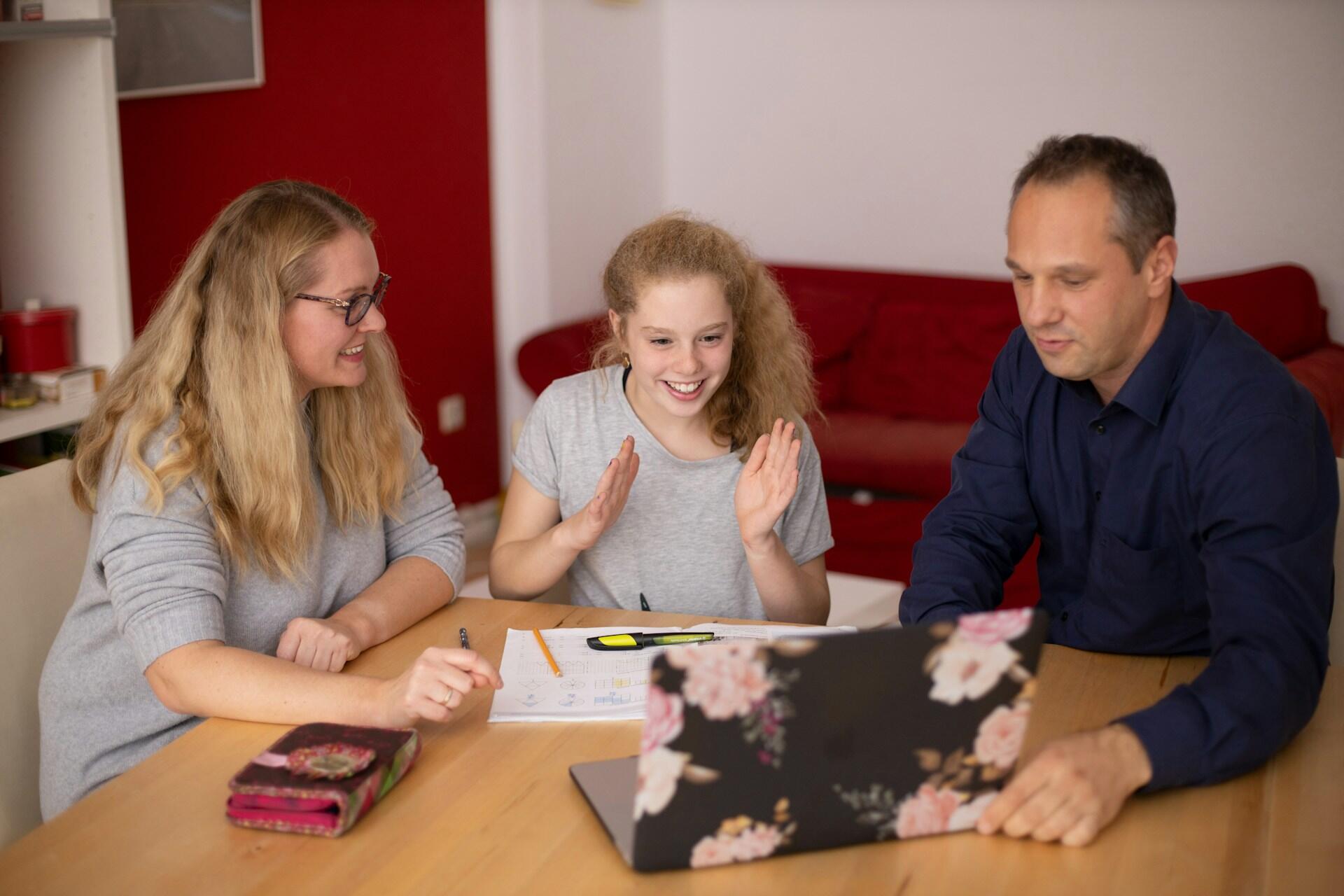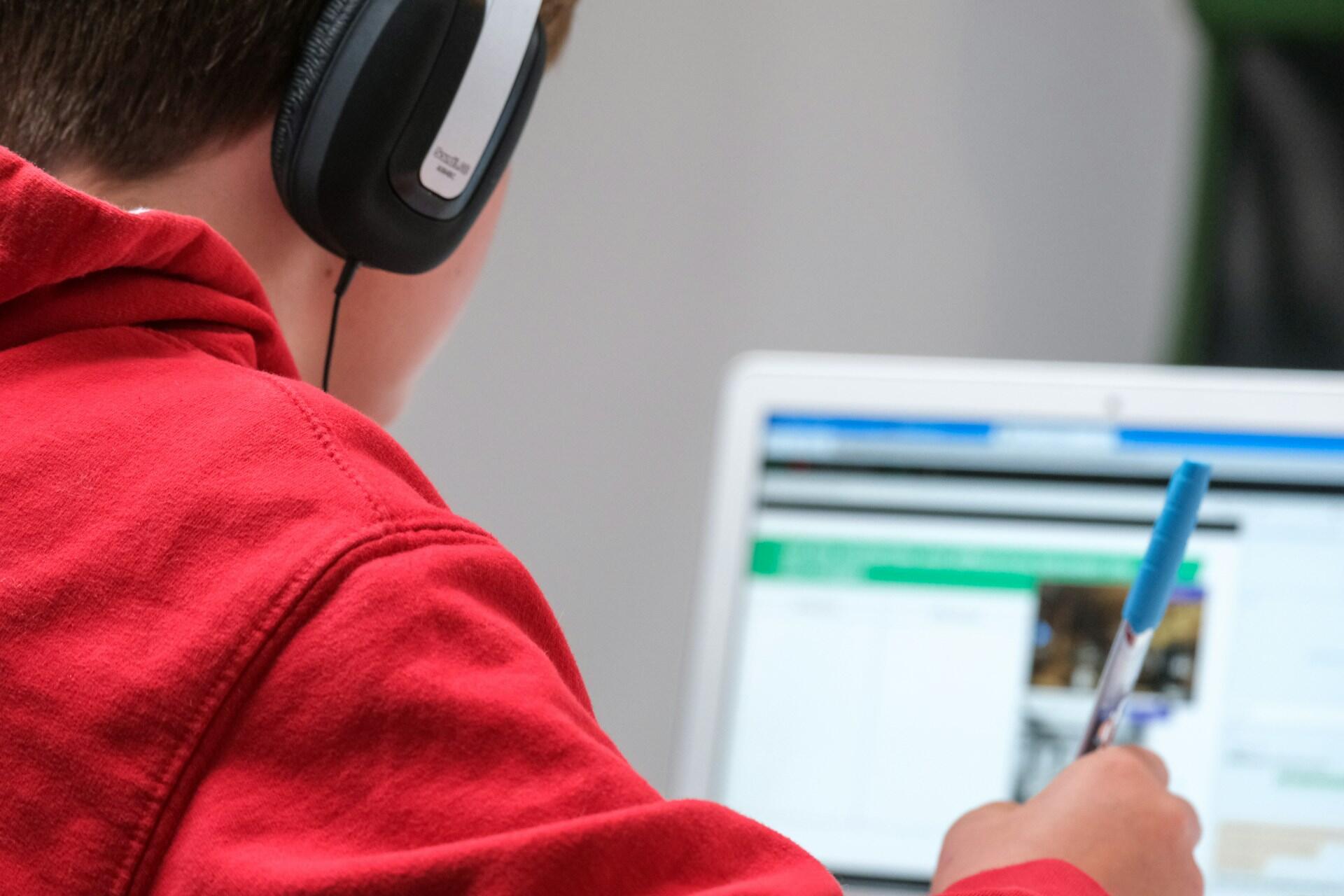The Junior Cert written examinations will take place from Wednesday 3 June to Monday 15 June 2026, according to the official State Examinations Commission timetable. Here are the updated timetables and some of the most commonly asked questions about them.

Junior Cert Exam Timetable 2026
The junior cycle examination, or "junior cert" colloquially, will take place between Wednesday, June 3rd, and Monday, June 15th, 2026. As you’ll see in the official 2026 Junior Cert timetable published by the State Examinations Commission, there are typically two written exam sessions a day, with exact dates and times listed for each subject.
exam window.
| Date | Time | Subject | Level |
|---|---|---|---|
| June 3 (Wed) | 9:30-11:30 | English | Higher & Ordinary Level |
| June 3 (Wed) | 1:30-3:30 | Religious Education | Common Level |
| June 4 (Thu) | 9:30-11:30 | Irish T1 (incl. aural) | Higher & Ordinary Level |
| June 4 (Thu) | 9:30-11:30 | Irish T2 (incl. aural) | Higher & Ordinary Level |
| June 4 (Thu) | 1:30-3:30 | Geography | Common Level |
| June 5 (Fri) | 9:30-11:30 | History | Common Level |
| June 5 (Fri) | 1:30-3:30 | Mathematics | Higher & Ordinary Level |
| June 8 (Mon) | 9:30-11:30 | Science | Common Level |
| June 8 (Mon) | 1:30-3:30 | Business Studies | Common Level |
| June 9 (Tue) | 9:30-11:30 | Graphics | Common Level |
| June 9 (Tue) | 9:30-11:30 | Italian (incl. aural) | Common Level |
| June 9 (Tue) | 1:30-3:30 | French (incl. aural) | Common Level |
| June 10 (Wed) | 9:30-11:00 | Home Economics | Common Level |
| June 10 (Wed) | 1:30-3:30 | Spanish (incl. aural) | Common Level |
| June 11 (Thu) | 9:30-11:30 | German (incl. aural) | Common Level |
| June 11 (Thu) | 1:30-3:00 | Wood Technology | Common Level |
| June 12 (Fri) | 9:30-11:30 | Jewish Studies | Common Level |
| June 12 (Fri) | 9:30-11:00 | Music | Common Level |
| June 12 (Fri) | 1:30-3:00 | Engineering | Common Level |
| June 12 (Fri) | 1:30-3:30 | Classics | Common Level |
| June 15 (Mon) | 9:30-11:00 | Applied Technology | Common Level |
Common Junior Cert Questions Answered

What Is the Junior Cert?
The Junior Cert is the state examination taken by students in Ireland at the end of their Junior Cycle in school. This usually occurs at ages 15 and 16, and students are tested on the various things they've learned in their first three years of secondary education.
The Junior Cycle Profile of Achievement (JCPA) is the official record students receive after completing their Junior Cert. It shows the grades achieved in each subject, along with results from Classroom-Based Assessments (CBAs) and other learning achievements. Unlike older exam systems, the JCPA reflects a broader picture of a student’s learning, not just their performance in written exams.
What Subjects Can You Take for the Junior Cert?
A student can take many subjects for their Junior Cert, including English, Maths, and Irish (Gaeilge), the core subjects. Students also have the option to pick various other optional subjects, such as Science, History, Geography, various languages, Home Economics, Woodwork, and Art.
core subjects taken by all Junior Cycle students (unless exempt).
The core subjects are the most “popular” because every student has to take them (except those with an exemption). As for the optional subjects, Science, Geography, and History are all popular choices.
Most Junior Cert students take between 8 and 10 subjects, including the core subjects of English, Maths, and Irish. Optional subjects vary by school and student choice, allowing learners to explore interests such as Science, History, Geography, languages, or practical subjects. The number of subjects taken can affect workload and revision planning across the exam period.
When Are Junior Cert Exams Held in 2026?
Please see the timetable above for the detailed official 2026 Junior Cert exam dates and times issued by the State Examinations Commission. Typically, the Junior Cert and Leaving Cert examinations take place in June. This year is no different.
How the Junior Cert Has Changed in Recent Years
Several significant reforms in Ireland's educational system have recently affected the Junior Cert. Firstly, changes to the Junior Cycle Framework to modernise the exams have included a greater focus on continuous assessment and project work.
Classroom-Based Assessments (CBAs) are completed during the second and third years and focus on skills like research, communication, and problem-solving. They are assessed by teachers and reported as Exceptional, Above Expectations, In Line with Expectations, or Yet to Meet Expectations. CBAs reduce pressure on final exams by spreading assessment across the Junior Cycle.
The changes involved ensuring the curriculum was more relevant to the 21st century and focusing on critical skills for students, such as critical thinking, problem-solving, creativity, and collaboration.
The recent changes in the Junior Cert have been designed to reduce exam stress and make the assessment process more comprehensive. By including continuous assessment and classroom-based assessments (CBAs), students' grades are less dependent on their performance over a couple of hours during an exam, giving them a fairer chance to showcase their abilities.
How the Junior Cert Is Graded
Since the Junior Certificate is part of the Junior Cycle in Ireland, there's a new grading system. The system uses percentage marks to assign grades based on students' performance, as shown in this table.
| Grade | Percentage Range |
|---|---|
| Distinction | 90 to 100% |
| Higher Merit | 75 to 89% |
| Merit | 55 to 74% |
| Achieved | 40 to 54% |
| Partially Achieved | 20 to 39% |
| Not Graded | 0 to 19% |
Each subject is graded using several assessment components, including the final examination (which takes place at the time and date according to the above timetable), the classroom-based assessments (CBAs) from their second and third years, and assessment tasks, practical work, and oral and aural exams in the case of languages. It's also worth knowing the adjustments made to Leaving Cert subjects.

Understanding the Junior Cert Timetable 2026
The Junior Cert or junior cycle examination, officially called by the State Examinations Commission, takes place between Wednesday, June 3rd and Monday, June 15th, 2026. The State Examinations Commission organises and releases the timetable, so they always double-check the times and exams against the official timetable issued by the Commission. Our timetable is based on theirs, but you never know.
While the Junior Cert timetable is designed to avoid clashes, some students may have exams scheduled on the same day or in close succession. In these cases, careful revision planning and time management are essential. Students with approved accommodations may receive additional supports, coordinated through their school.
Understanding the timetable is crucial so you know when your exams are, but it's also essential to know when the exams are so that you can prioritise when you study for each one. In this guide, we'll look at the timetable itself and how you can prepare for your Junior Cert and, ultimately, your Leaving Cert and future exams if you choose to do them.
written exams in one day.
There are typically morning and afternoon sessions for exams, and on most days, at most two will take place. Each subject’s exam date and time are listed in the table above. Make sure to check your subjects specifically, as some may fall on the same day or in the same session.
Students
- Check exam dates for each subject early in the year
- Identify which exams fall close together
- Plan revision around the Junior Cert timetable 2026
- Use the timetable to reduce last-minute stress
- Confirm times and locations with your school
Parents and Guardians
- Help students plan realistic study schedules
- Be aware of early or late exam days
- Support routines during the exam period
- Plan family commitments around exam dates
- Understand how Junior Cert results affect Leaving Cert pathways

How to Prepare for the Junior Cert Exams
Like any exam or assessment, students should prepare for the Junior Cert to get the best possible grades and results that most reflect their ability in each subject.
Before the Exams
- Create a realistic study timetable based on the Junior Cert timetable 2026
- Identify which subjects fall early in the exam period
- Focus revision on core subjects first
- Use CBAs and class feedback to identify weak areas
- Practise with past Junior Cert exam questions
During the Exam Period
- Double-check exam times and locations each day
- Prepare materials the night before each exam
- Use breaks between exams to rest, not cram
- Eat regularly and stay hydrated
- Keep evenings light to avoid burnout
After Each Exam
- Avoid over-analysing answers once an exam ends
- Refocus quickly on the next subject
- Review upcoming exam formats and timings
- Keep a steady routine until the final exam
- Remember that one paper does not define your overall result

Students should generally create a study plan. This allows them to allocate appropriate time to studying different subjects and to set clear goals for their studies. It also helps to use past exam papers to get into the habit of taking exams under exam conditions. While every exam differs each year, there are recurring question types in each subject that it's worthwhile getting used to. Remember to take regular breaks while studying, too. You can quickly start hitting a wall if you try to do too much in too little time.
Junior Cert Study Resources and Supports
Effectively studying for the Junior Cert requires the right approaches and resources. Start by asking your school for any recommended resources, including the curriculum, textbooks, and materials provided by your teachers. Beyond that, there are also popular online resources and educational apps with tutorials, quizzes, and interactive lessons. Apps can be helpful for spaced repetition and flashcards, especially when memorising processes, events, dates, or even vocabulary.
Why Junior Cert Results Still Matter
Depending on how far your academic career goes, the Junior Cert mightn't feel like the most important exam you've ever taken, but it's still important. At this point, the Junior Cert is not just a set of exams, but a testament to your educational progression. It reflects your hard work and dedication, showing just how well you're doing in school. Your Junior Cert results will play a significant role in shaping your academic path. They'll help decide which classes you take and get put into for your Leaving Cert, setting the stage for your future educational journey.
While most won't examine Junior Cert results closely when you apply to university, very competitive courses may consider various factors, including a student's Junior Cert results. The Junior Cert is also particularly useful for assessing students' progress after the shift to secondary education. Most schools will monitor their students' progress in great detail, and the Junior Cert can help students work out where they are while still giving them time to turn things around before the Leaving Cert.
The Leaving Cert Timetable 2026
Taking place around the same time, you can see the Leaving Cert exam timetable here. With more exams and more subjects, the Leaving Cert timetable for 2026 is busier than the Junior Cert timetable.
| Date | Time | Subject | Level |
|---|---|---|---|
| June 3 (Wed) | 9:30-12:20 | English, Paper 1 | Higher & Ordinary Level |
| June 3 (Wed) | 2:00-4:30 | Home Economics, Scientific and Social | Higher & Ordinary Level |
| June 4 (Thu) | 9:30-12:00 | Engineering | Ordinary Level |
| June 4 (Thu) | 9:30-12:30 | Engineering | Higher Level |
| June 4 (Thu) | 2:00-5:20 | English, Paper 2 | Higher & Ordinary Level |
| June 5 (Fri) | 9:30-12:20 | Geography | Higher & Ordinary Level |
| June 5 (Fri) | 2:00-4:30 | Mathematics, Paper 1 | Higher & Ordinary Level |
| June 5 (Fri) | 2:00-4:30 | Mathematics | Foundation Level |
| June 8 (Mon) | 9:30-12:00 | Mathematics, Paper 2 | Higher & Ordinary Level |
| June 8 (Mon) | 2:00-4:20 | Irish, Paper 1 | Higher Level (incl. aural) |
| June 8 (Mon) | 2:00-3:50 | Irish, Paper 1 | Ordinary Level (incl. aural) |
| June 8 (Mon) | 2:00-4:20 | Irish | Foundation Level (incl. aural) |
| June 9 (Tue) | 9:30-11:50 | Irish, Paper 2 | Ordinary Level |
| June 9 (Tue) | 9:30-12:35 | Irish, Paper 2 | Higher Level |
| June 9 (Tue) | 2:00-5:00 | Biology | Higher & Ordinary Level |
| June 10 (Wed) | 9:30-12:00 | French - Written | Higher & Ordinary Level |
| June 10 (Wed) | 12:10-12:50 | French - Aural | Higher & Ordinary Level |
| June 10 (Wed) | 2:00-4:50 | History | Higher & Ordinary Level |
| June 11 (Thu) | 9:30-12:00 | Business | Ordinary Level |
| June 11 (Thu) | 9:30-12:30 | Business | Higher Level |
| June 11 (Thu) | 2:00-4:30 | Construction Studies | Ordinary Level |
| June 11 (Thu) | 2:00-5:00 | Construction Studies | Higher Level |
| June 12 (Fri) | 9:30-12:00 | German - Written | Higher & Ordinary Level |
| June 12 (Fri) | 12:10-12:50 | German - Aural | Higher & Ordinary Level |
| June 12 (Fri) | 2:00-4:30 | Art, Visual Studies | Higher & Ordinary Level |
| June 15 (Mon) | 9:30-12:00 | Polish, Lithuanian, Portuguese, Mandarin - Written | Higher & Ordinary Level |
| June 15 (Mon) | 12:10-12:50 | Polish, Lithuanian, Portuguese, Mandarin - Aural | Higher & Ordinary Level |
| June 15 (Mon) | 9:30-12:30 | Hebrew Studies, Ancient Greek, Non-Curricular Languages | Higher & Ordinary Level |
| June 15 (Mon) | 2:00-4:30 | Agricultural Science | Higher & Ordinary Level |
| June 16 (Tue) | 9:30-12:00 | Spanish - Written | Higher & Ordinary Level |
| June 16 (Tue) | 12:10-12:50 | Spanish - Aural | Higher & Ordinary Level |
| June 16 (Tue) | 2:00-5:00 | Chemistry | Higher & Ordinary Level |
| June 17 (Wed) | 9:30-12:30 | Physics | Higher & Ordinary Level |
| June 17 (Wed) | 9:30-12:30 | Physics and Chemistry | Higher & Ordinary Level |
| June 17 (Wed) | 2:00-5:00 | Accounting | Higher & Ordinary Level |
| June 18 (Thu) | 9:30-12:30 | Design and Communication Graphics | Higher & Ordinary Level |
| June 18 (Thu) | 1:30-3:00 | Music - Listening (Core) | Higher & Ordinary Level |
| June 18 (Thu) | 3:15-4:45 | Music - Composing | Higher & Ordinary Level |
| June 18 (Thu) | 5:00-5:45 | Music - Listening (Elective) | Higher Level |
| June 19 (Fri) | 9:30-12:00 | Economics | Higher & Ordinary Level |
| June 19 (Fri) | 2:00-4:30 | Physical Education | Higher & Ordinary Level |
| June 22 (Mon) | 9:30-12:00 | Italian - Written | Higher & Ordinary Level |
| June 22 (Mon) | 12:10-12:50 | Italian - Aural | Higher & Ordinary Level |
| June 22 (Mon) | 9:30-12:00 | Russian - Written | Higher & Ordinary Level |
| June 22 (Mon) | 12:10-12:50 | Russian - Aural | Higher & Ordinary Level |
| June 22 (Mon) | 2:00-4:30 | Classical Studies | Higher & Ordinary Level |
| June 22 (Mon) | 2:00-5:00 | Latin | Higher & Ordinary Level |
| June 22 (Mon) | 2:00-4:00 | Technology | Ordinary Level |
| June 22 (Mon) | 2:00-4:30 | Technology | Higher Level |
| June 23 (Tue) | 9:30-12:00 | Japanese - Written | Higher & Ordinary Level |
| June 23 (Tue) | 12:10-12:50 | Japanese - Aural | Higher & Ordinary Level |
| June 23 (Tue) | 9:30-12:00 | Politics & Society | Higher & Ordinary Level |
| June 23 (Tue) | 9:30-12:30 | Arabic - Written | Higher & Ordinary Level |
| June 23 (Tue) | 2:00-4:00 | Religious Education | Ordinary Level |
| June 23 (Tue) | 2:00-4:30 | Religious Education | Higher Level |
| June 23 (Tue) | 2:00-4:30 | Applied Mathematics | Higher & Ordinary Level |
How to Prepare for Your Junior Cert and Leaving Cert with a Private Tutor
Whether it's for the Junior Cert, Leaving Cert, a university degree, or learning new skills, a private tutor can help in many ways.

Private tutors can help students in ways their teachers can't. With smaller groups or individual students, tutors can tailor every session and activity to the student.
Unfortunately, even the best teachers don't have this opportunity. This isn't to say that school teachers aren't good; they're often incredibly passionate educators who are underpaid and undervalued and rarely given the resources they need to teach their students.
Private tutoring solves many problems that school teachers encounter by reducing class sizes and allowing them to teach the skills students want or need to learn rather than simply teaching to an exam or a specific curriculum.
On the Superprof website, you can search for the subject you'd like help with and browse the profiles of tutors in Ireland and around the world.
While it may help to opt for a tutor in Ireland who understands the Junior Cert, if it's for specific topics within a subject, tutors from around the world can help. You can learn face-to-face with a tutor, online, in groups, or one-on-one. Each type of tutoring has its pros and cons, so think carefully about which will work for you and your budget.
Face-to-face and one-on-one tutoring is usually more expensive, but this is the most effective. Online tutoring can be almost as effective for academic subjects as in-person tutoring, but it becomes less effective with hands-on subjects. It's better to get help with woodworking in person, both for practical and safety reasons.
Luckily for you, many of the tutors on the Superprof website offer their first session for free, so you can always try several tutors before deciding on the one who's right for you and what you need to learn for your Junior Cert. Search for a tutor today.
Summarise with AI:













